
General Studies 4- Complete Ethics UPSC Notes & Syllabus Download
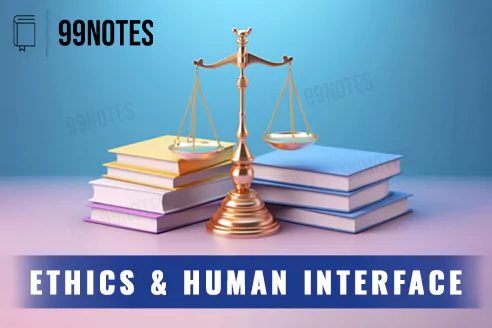
Ethics & Human Interface
Ethics refers to the set of societal values that guide a person about what is right or wrong. In this topic we shall see the essence and dimensions of ethics and how ethics guides human actions. We shall see how Ethics guides our private and public relationships.

Attitude
Attitude is the Predisposition of a person to act in a certain situation. Our attitude is always guided by our ethical understanding. In this topic, we shall see how is our attitude built, what functions it performs, and how it influences our thoughts and behaviour.
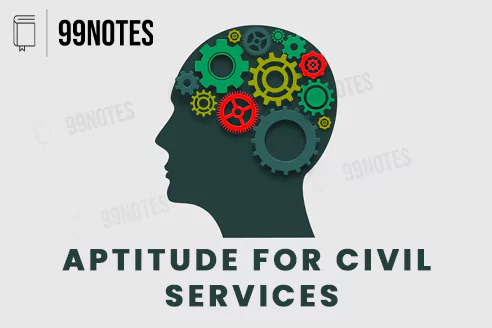
Aptitude For Civil Services
There are a set of foundational values that a candidate needs to hold to prove to be worthy of becoming a civil servant. Integrity, which is the quality of a person to uphold ethical values even in most compelling situation, is the most important foundational value.
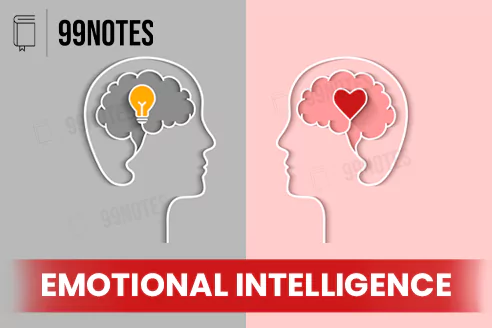
Emotional Intelligence
Emotional Intelligence is the ability of a person to recognise and classify the emotions of oneself and of others. This ability helps us to emotionally manage ourselves and others in distress situations. It also helps us to understand other individuals and their needs and to find ways to persuade them.

Moral Thinkers & Philosophers
Thinkers and Philosophers of India and the world have left a rich variety of literature in the field of Morality. The lessons from the lives of teachers and reformers can guide our ethical understanding.
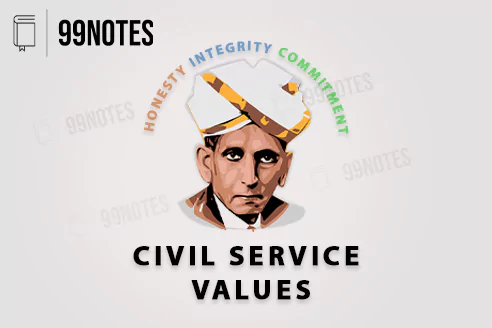
Civil Service Values
The Public service values or Civil service values in Ethics and Public administration have been partly discussed in the Aptitude for the Civil services article. Public service is the set of efforts that are taken in the interest of society.

Ethical Issues in International Relations
In the realm of International relations, Ethical dilemmas related to national interest are plenty. Therefore, Ethics in International Relations has become an hotly asked topic in the UPSC examination.

Corporate Governance
Corporate governance is the set of rules and practices by which a firm is directed and controlled. The essential ethical issue in corporate governance is balancing the interests of a company’s many stakeholders, such as shareholders and the management with that of the government and the community.

Probity in Governance
Probity is the quality of having good moral character. In this topic we shall cover the philosophical basis of governance and probity, Code of Ethics, Code of Conduct and citizen charter etc. These concepts are important imparting ethical governance.
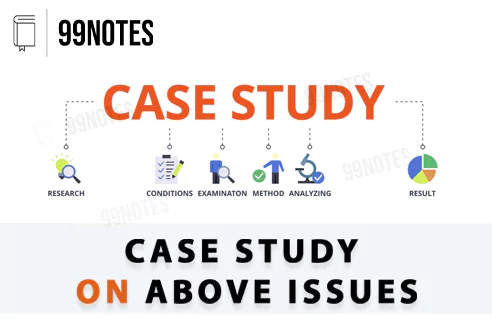
Case Study On Above Issue
In this article, case studies shall be discussed which would test a candidate’s ability to apply the ethical concepts in practical situations. About 50% of the General Studies-4 paper consists of just case studies (120 marks out of 250).
ETHICS Notes for UPSC
Ethics is an important topic in the UPSC Civil Services Examination (CSE). The CSE is a competitive examination conducted by the Union Public Service Commission (UPSC) in India to select candidates for various civil services positions in the Indian government, including the Indian Administrative Service (IAS), Indian Police Service (IPS), and Indian Foreign Service (IFS). As a civil servant, you will be expected to adhere to high ethical standards in the performance of your duties.
- Integrity: Integrity is a cornerstone of ethical conduct. It involves being honest, sincere, and transparent in your words and actions. As a civil servant, you should always be truthful and not deceive or mislead others. You should also be consistent in your behavior, and not act in a way that is contradictory to your values or beliefs.
- Objectivity: Objectivity is another key principle of ethics. It involves basing your decisions and actions on facts and evidence, rather than being influenced by personal biases or interests. As a civil servant, you should be objective and unbiased in your decision-making, and not allow your personal views or preferences to influence your judgment.
- Impartiality: Impartiality is closely related to objectivity, and involves treating all people equally, without favoritism or discrimination. As a civil servant, you should be fair and impartial in your treatment of others, and not show favoritism based on factors such as race, religion, gender, or nationality.
- Responsibility: Responsibility is an important principle of ethics that involves being accountable for your actions and decisions, and being willing to accept the consequences of your choices. As a civil servant, you should take responsibility for your actions and be held accountable for any mistakes or errors that you make.
- Fairness: Fairness is a key principle of ethics that involves treating others justly and not abusing your power or authority. As a civil servant, you should be fair and just in your treatment of others, and not use your position to unfairly advantage or disadvantage others.
- Confidentiality: Confidentiality is a principle of ethics that involves respecting the privacy of individuals and keeping information confidential as required by law or professional standards. As a civil servant, you may come into contact with sensitive information that must be kept confidential, such as personal or financial information. It is important that you respect the privacy of individuals and protect the confidentiality of sensitive information.
- Professionalism: Professionalism is a principle of ethics that involves maintaining the highest standards of professional conduct and adhering to the ethical principles of your profession. As a civil servant, you should be professional in your conduct, and act with integrity, objectivity, impartiality, responsibility, fairness, and confidentiality.
In summary, ethics is an important topic in the UPSC Civil Services Examination (CSE) and is crucial to the role of a civil servant. You should be familiar with and uphold the principles of integrity, objectivity, impartiality, responsibility, fairness, confidentiality, and professionalism in order to maintain the trust and confidence of the public. Here we are providing Complete Ethics UPSC Notes, stay connected to read more.
GS Paper-4, titled Ethics, Integrity, and Aptitude :
GS Paper-4, titled Ethics, Integrity, and Aptitude, was implemented as part of revisions to the mains curriculum for the 2013 civil services test.
- The official UPSC course outline provides broad recommendations for what UPSC intends to assess in this paper.
It states, “This exam will evaluate the candidate’s attitude and approach to issues pertaining to integrity, probity in public life, and his problem-solving approach to numerous challenges and conflicts he faces when interacting with society.” These elements may be determined by means of case study-based inquiries.
This paper is broken into two portions, each worth 125 points: Section A and Section B.
- The majority of the theoretical topics in Section A are of an applied nature.
- Case studies are found in Section B.
- Both portions demand distinct approaches.
- Overall, grading an ethics paper is a game of keywords, self-awareness, and the capacity to present oneself as a pragmatic, productive, and devoted to personal and professional ethical personality.
The examination is of a generalist type. Up till now, the UPSC has asked questions requiring the use of common sense while keeping in mind ethical values.
The Significance of Ethics Paper
Achieving a high grade on the ethics paper is a prerequisite for making the final list and receiving the desired service.
Similar to the essay assignment, this paper provides the highest profits. With minimal work, one may earn high grades. Incorporating a moral component into responses for GS Papers 1, 2, 3, as well as the essay, is facilitated by careful preparation for this exam.
In the personality exam, it also helps to appear like a person with the attributes required in a public servant.
General Instructions for Writing an Ethics Paper
- Syllabus of Ethics is your most significant book and keyword list in and of itself. Learn the course outline so that you may utilise the course-specific terms in your replies.
- Read a few novels. Read them again before highlighting significant passages. Mark lines and jot down brief remarks.
- Notes assist to organise keywords in a simple manner. This is a MUST, as the drafting of ethical answers consists of keyword play.
- See all papers from past years. Take notice of uncommon search terms such as 7 sins, Weber, and Rawls’s social justice theory, among others. Use these terms in your responses.
- Reading is less important in Ethics than writing answers. Know the optimal format and method for composing section-A and case study responses.
- Create examples from current events, societal concerns, your job life, your interests, etc. The heart of answer writing for an Ethics paper consists of examples.
- Create diagrams in Ethics that are distinctive and original. This will provide an advantage over competitors.
